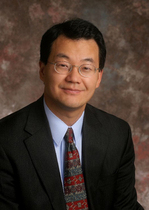Residential Real Estate News

NAR Predicts Several U.S. Housing Market Outcomes
Residential News » Washington D.C. Edition | By WPJ Staff | September 12, 2023 7:55 AM ET
The National Association of Realtors Chief Economist Lawrence Yun issued the following statement this week on the State of the U.S. Housing Market in 2023.

Yun starts his market predictions by saying, "The current problem related to the housing market is limited supply. Even before the onset of the pandemic, in 2019, there was a shortage of approximately 4-to-5 million housing units in America. That came about due to population and job growth that outpaced new-home construction. Then, the shortage worsened during the first year of the COVID-19 real estate boom as many desired to take advantage of the historically low interest rates. The shortage intensified when mortgage rates shot up due to homeowners who have been unwilling to list and give away their locked-in low rates."
Yun continues, "One future scenario is some calming in the economy and inflation. That will lead to modestly lower mortgage rates and more buyers will come to the market. Hopefully, homebuilders will ramp up production and we'll continue to see the repurposing of empty commercial buildings into residential units. Home prices are not crashing in this scenario. Home price growth will depend on whether homebuilders can bring sufficient supply to the market.'
"Another scenario is if we experience an economic recession when jobs are being cut. Those who lose jobs may be forced to sell their homes. Moreover, those uncertain about their jobs will not have the confidence to buy a home. However, a recession means much lower interest rates. And those with stable jobs - around 70% to 80% of workers - will want to take advantage of low interest rates.'
"This scenario may cause home prices to rise faster, especially if some wealthy people decide to reallocate investments from the stock market to real estate. We will not have a repeat of the 2008-2012 housing market crash. There are no risky subprime mortgages that could implode nor the combination of a massive oversupply and overproduction of homes," concludes Yun.
Sign Up Free | The WPJ Weekly Newsletter
Relevant real estate news.
Actionable market intelligence.
Right to your inbox every week.
Real Estate Listings Showcase
Related News Stories
Residential Real Estate Headlines
- Las Vegas Area Home Prices Uptick 4.3 Percent Annually in March
- Single-Family Rent Growth in U.S. Trends Upward in 2025
- U.S. Mortgage Rates Tick Down Post Trump Tariffs Commencement
- President Trump's 'Liberation Day' Tariffs Potential Impact on the U.S. Housing and Mortgage Markets
- Baby Boomers Biggest Cohort of U.S. Home Buyers in 2025 as Millennials Decline
- U.S. Monthly Housing Payments Hit Record High in 2025
- U.S. Pending Home Sales Uptick in February
- Global Prime Residential Rent Slowdown Continued in Late 2024
- Ireland Home Price Inflation Hits 8 Year High in Early 2025
- Existing Home Sales in America Uptick in February
- Great Miami Area Residential Sales Decline 15 Percent Annually in February
- Mortgage Rates Uptick in Mid-March, Ending 9-Week Decline in U.S.
- World Property Ventures Builds the Future of Real Estate with New Funding Round
- U.S. Builder Sentiment Declines Amid Economic Uncertainty and Rising Costs
- Black Homeownership Rates in U.S. Enjoy Largest Annual Increase of All Racial Groups
- Wealthy Renters Are Taking Over More of the U.S. Rental Market
- If U.S. Congress Does Not Extend NFIP Soon, Thousands of Daily Home Closings Impacted
- U.S. Mortgage Applications Spike 11 Percent in Early March
- Greater Palm Beach Area Residential Sales Rise in Early 2025
- New Apartments in U.S. Are Leasing at Slowest Pace on Record
- U.S. Mortgage Rates Drop to 4 Month Low in March
- Overall U.S. Mortgage Delinquency Rates Dip in December
- New Tariffs on Canada, Mexico to Impact U.S. Homebuilder Input Costs
- Monaco's Property Market: A Tale of Two Cities
- U.S. Home Purchase Cancellations Surge, 1 in 7 Sales Getting Canceled
- U.S. Pending Home Sales Hit Historic Low in Early 2025
- Greater Miami Area Residential Sales Dip in January
- Governor DeSantis Supports Ending Property Taxes in Florida
- WPV Aims to Become the Berkshire Hathaway of Real Estate Tech
- U.S. Home Sales Slump Continues in January
- Average Americans Spend 38 Percent of Monthly Income on Mortgage Payments
- Switzerland's Safe-Haven Appeal Grows with World's Wealthy Homebuyers
- U.S. Builder Confidence Rapidly Declines in February
- Las Vegas Home Sales Rise 6.7 Percent Annually in January, Condo Sales Dip
- Homebuyer Demand in America Drops to 5-Year Low in Early 2025
- Ownership More Affordable Than Renting in Most U.S. Markets
- The World's First Global Listings Service Launches, Called a GLS
- Home Prices Continue to Rise in 89 Percent of U.S. Metros in Late 2024
- Global Luxury Residential Prices Showed Gradual Improvement in Late 2024
- U.S. Construction Hiring Rate Drops to Lowest Levels in 5 Years





